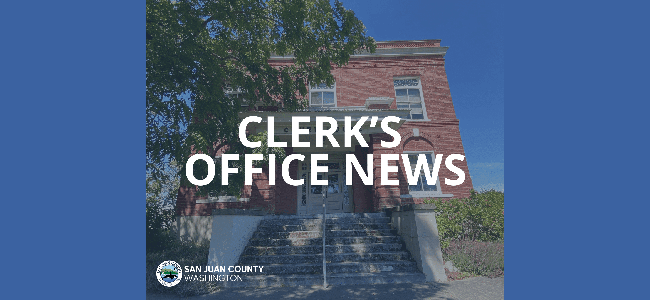Veterans Day 2010
War continues and threatens – we continue to fight in Afghanistan, and while “withdrawn from combat” from Iraq, military forces continue to serve there. Talk continues of the threat of war with Iran.
Every day we have more veterans and today we pause to honor them. War has changed; victory is ineffable and the permanent war described by writer George Orwell seems to be accepted in modern life.
Here in the Salish Sea – Seattle – Puget Sound hub, we are surrounded by the factories and resources of war:
- Bremerton and Everett Naval shipyards
- Keyport Naval Undersea Warfare Center on the Kitsap Peninsula
- Whidbey Island Naval Air Station
- Joint Army Fort Lewis-McChord Air Force Base by Tacoma
- Boeing’s Military Defense plant
- Indian Island (by Port Townsend) naval munitions base
- Bangor (on Hood Canal) submarine base
Our daily lifestyle in the verdant northwest is supported by these military installations, yet in general we are free from the horrors of war. But as we pause today to honor United States military veterans, we should also call to mind those in Veterans Administration hospitals in Seattle and elsewhere throughout the country and our own Veterans Advisory Committee, serving veterans here in San Juan County.
Shouldn’t our acceptance of a state of permanent warfare have a plan for the reintegration and rehabilitation of our combat veterans, beyond the annual salute-to-the-vets?
Unfortunately, our past includes not only dominance and destruction of foreign lands and waters, but the destruction of our most precious treasure: our children, their spirits and their very lives. Our veterans are more often than not, a casualty of war.
During World War II, the turning point of the war in Europe, according to many military historians, was the battle of Stalingrad, where the Russians, in street-by-street warfare (like that seen today in Baghdad and Kabul), turned away the German army, whose military superiority was in field warfare. Our allies, the Russians, won that battle because they had soldier after soldier, man and woman, who gave their life and death to the cause.
The United States doesn’t have that prodigious human inventory to engage in war, but they give what they have, and far too many are sent away with the likely return being severely damaged, physically, mentally and emotionally.
The dead become the heroes, valued in memory with brave bright words. But what of the injured, the wounded in soul and body?
Back to our safe homeland and our increasing national debt that is now at $13 trillion. As we discuss cutting social, human and health services, and entitlements such as Medicare, Social Security and Medicaid, isn’t the welfare of our vaunted veterans worthy of a “seat at the table” to discuss our resources and our priorities? Is the 48% of the U.S. military budget ($1, 398 billion — $1,398,000,000,000) so well thought-out that it bears no revision? (Figures from the Budget of the United States Government, Fiscal Year 2011)
Why not fully devote ourselves to spending a quarter of our military budget for our veterans, and in the process, rehabilitate other human service sectors (health, education, commerce, environment) of our economy?
Here’s a plan:
The New Martial Plan for the Federal Defense Budget:
- Fully employ Emergency Medical Technicians (EMTs) and other civil government health workers, who are currently unemployed due to public budget cuts, to treat our wounded, to re-train them in the basic activities of life, to their abilities – walking, talking, thinking.
- Fully employ public educators whose school districts can no longer afford to employ them in providing literacy, high-school diplomas, associate degrees and bachelor of arts/science to vets as a new GI education bill (which is why many young people join the military).
- Fully employ those veteran graduates in a quota system for all federal hiring: 10 percent of all departments’ hiring will be filled by “Returning Warriors.”
Uncle Sam want you – to Teach for America, Heal for America, Build for America – all initiatives as worthy as “Fight for America” and “Die for America.”
As President Obama pointed out in a televised interview with John Stewart last week, many of our best systems, such as Social Security and Medicare, started small. But the point is they started. And they started when the need was no longer tolerable, when something had to be done.
Haven’t we reached that point?
Those invested in the framework of the current system find it difficult, if not impossible, to consider a radically different way of spending our money, or addressing our deficit.
But perhaps if we started from our need to take care of our own, our vets, perhaps if we focused on what we are morally obligated to do, rather than sustaining logistics and allocations of the past, we can see a way to do the right things for our vets, and for our children.
And another suggestion: don’t automatically refer to combat and military veterans as “heroes.” Instead refer to them as “War Victims” or “War Casualties” for that is in fact what they are. The heroes are the ones who challenge armed conflict as inevitable and reject permanent war and who work to change that reality.
Lots of half-baked ideas for ridicule and nay-saying here, right? So, in all sincerity, make some of your own with your experience and knowledge.
But don’t leave this day, honoring our veterans, without giving some thought to what life will be like for them after the cheering stops.
**If you are reading theOrcasonian for free, thank your fellow islanders. If you would like to support theOrcasonian CLICK HERE to set your modestly-priced, voluntary subscription. Otherwise, no worries; we’re happy to share with you.**








Thank you for this thoughtful piece. Many editorials today will only pay lip service to honoring veterans with no real plan for doing so.
There will be no ridicule or nay-saying or accusation of half-baked from this veteran of WWII. In another medium on November 11th, I opined that just maybe the obvious lack of great leaders in the 20th century was because the best and the brightest of all nations were buried beneath the row on rows of white crosses, many in far away places. The debt we owe to those can never be repaid. To those who survived? We did a lot, but not enough for many and for not long enough for many more.
As I watched some of the celebrations around the world, it was obvious that an all volunteer, professional armed service is a different kettle than we had in the 1900’s The sacrifices are the same but the debt and need for returnees is different. You covered the need nicely in your editorial.